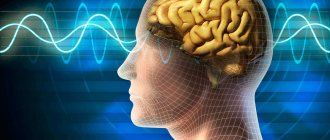05/24/20205 minutes read 2189
Schizophrenia is a chronic mental illness. It affects about 1 percent of the population, although the exact prevalence of the disease is difficult to determine.
People with this condition experience:
- hallucinations
- crazy ideas
- disordered thoughts
- disorganized speech
- withdrawals or breaks from reality
The disease is divided into stages or phases. Each phase is characterized by certain characteristics.
Stages of schizophrenia
The stages appear one after another and include the following symptoms:
Prodromal.
This initial stage (or first stage) is often not recognized until the disease has progressed. The initial stage is easy to miss.
Active.
Also known as acute schizophrenia, the manifestation stage. This stage is the most noticeable. People show clear signs of psychosis, including hallucinations, suspiciousness, and delusions. It differs sharply from the first, initial stage.
Residual.
Although the term is not a recognized diagnosis in the DSM-5, it is still used to describe a condition in which people with schizophrenia have fewer obvious symptoms (the psychosis is muted). However, some symptoms are still present. Remission—sustained improvement—should not be confused with the final stage of a psychotic episode. Remission occurs after the last residual stage
Acute period
This is the second stage of schizophrenia. She says that the development of the disease has entered the active phase. Delusions with hallucinations reach their apogee. Disorganized behavior and outbursts of emotions are absolutely impossible to control.
The disease can occur in attacks, when most of the time a person behaves as usual, no different from those around him. However, at some point an attack occurs and the behavior changes dramatically.
After the attack, the patient gradually recovers, his behavior fits within the generally accepted framework. But some part of the brain no longer returns to its former life, but gradually dies off. With each attack the situation becomes more and more aggravated. This is expressed as follows:
- strange, eccentric behavior or appearance (mannerism, talking to oneself);
- slow speech or shouting of individual phrases;
- suspicion;
- unusual sensations coming from the body;
- social anxiety (anxiety and discomfort increase when you need to do something in the presence of people);
- depersonalization, derealization;
- obsessions and compulsions.
Most often, it is during this period of development of the disease that a person needs hospitalization. And although this acute phase is not yet the last stage of schizophrenia, it is very painful and difficult.
What are the symptoms of each stage?
Each stage has its own signs and symptoms that help classify it.
Only the acute stage of schizophrenia is characterized by a “sudden” onset of symptoms. A person may remain in the prodromal stage for years, and symptoms will appear subtly and gradually.
In the initial, prodromal stage, the signs are not always obvious, as you will see when you read about this.
Prodromal symptoms of schizophrenia
The first and early signs of the first stage can be overlooked because they are common to many other conditions, such as depression.
Often the prodromal initial stage is recognized and diagnosed only when schizophrenia becomes acute.
Early symptoms of schizophrenia in this phase may include:
- withdrawal from social life or family activities
- isolation
- increased anxiety
- difficulty concentrating or paying attention
- lack of motivation
- difficulty making decisions
- change in usual lifestyle
- neglect of personal hygiene
- sleep disturbance
- increased irritability, it is usually invisible at the first stage.
Symptoms of the acute phase of schizophrenia
At this stage, the signs are obvious to everyone, even non-psychiatrists.
Research shows that by the time a person enters this phase, signs of the prodromal initial stage have been evident for about 2 years.
Symptoms include:
- hallucinations (the patient hears, what no one hears or sees, feels, what no one sees or feels)
- paranoid delusion
- confused and disorganized thoughts
- disordered speech
- changes in motor behavior (eg, useless or excessive movement)
- lack of eye contact
Symptoms of the residual stage
Although they are no longer used in diagnosis, some clinicians still highlight this stage when discussing the signs and progression of the disease.
The suffering in this phase of the disease resembles the symptoms in the first initial early phase. They are characterized by low energy and lack of motivation, but some elements remain. Some people may return to the acute state again, this is called a relapse.
Symptoms of the final stage include:
- lack of emotion
- social isolation
- low energy level
- eccentric behavior
- illogical thinking
- conceptual disorganization
The first bells
The initial signs of schizophrenia are not always visible to both others and the patient himself. A person’s thinking, perception of reality, and emotional field radically change. Moreover, most often these changes occur during puberty and personality formation. The teenager grows up, his family and he himself observe the external transformation, but the internal personal imbalance is not so noticeable, it may not arouse any suspicion for a long time.
The following signs can be attributed to the initial stage:
- absolute loss of interest in previously favorite activities;
- craving for drawing abstract, completely incomprehensible, frightening pictures;
- sloppy appearance, open disregard for personal hygiene standards;
- own beliefs, views and actions that are unacceptable by society;
- a state of confusion or lack of understanding of current events;
- persistent sleep disturbance.
The patient understands that something is happening to his body, but he is simply unable to influence these changes. Meanwhile, his consciousness is in the first stage of schizophrenia - prodromal. A person moves from the world familiar to everyone into his own, invented and distorted by an unhealthy psyche. He becomes withdrawn and avoids communication.
Signs of schizophrenia during the prodromal period are not typical, they are individual.
The prodromal stage is characterized by such phenomena as:
- Derealization of consciousness - current events seem fantastic.
- Depersonalization is a disorder of self-perception, doubt that you are alive and really exist.
- Panic attacks.
- Attacks of misanthropy - hatred of a crowd of people or of all humanity.
- Social isolation.
Changes in behavior lead to fear, anxiety, and confusion. The rapid course of the initial period of the disease gives new sensations. At some point, a novice schizophrenic feels like a superhero saving the world, and the next moment he is sure that he is a worthless creature. Such a surge of emotions frightens and inspires the patient at the same time.
What causes schizophrenia?
It is not clear why people develop the disease. Likewise, it is unclear how and why the pace of progression through the stages varies from person to person.
Researchers believe that a combination of factors causes initial, early chemical and structural changes in the brain. Ultimately, these changes lead to disease. These same factors influence when and how quickly a person moves from one stage to another. From initial to remission, if you get to the doctor on time.
Researchers believe these factors may be:
- Genetics.
If you have a family history of the disease, you are more likely to get it. However, having a family history does not mean you will definitely have the disease.
- Hormonal changes.
Researchers believe that hormones and age-related physical changes in the body may be a factor. The early stages of the disease often begin at a young age, during a period of major hormonal changes. On average, the initial, first signs of the disease in men appear at the end of adolescence and early 20s, and in women - later. Their first signs, as a rule, appear in their mid-20s to early 30s.
- Biological.
Neurotransmitters transmit signals between brain cells, and chemical changes can damage or weaken these signals. This can lead to illness.
- Brain structure.
Changes in the shape or structure of the brain can also disrupt communication between neurotransmitters and neurons.
- Ecological.
Researchers believe that early exposure to certain viruses can lead to schizophrenia. Likewise, lifestyle choices can influence disease risk. This also includes exposure to drugs or alcohol or other potent substances.
Why does it occur
Experts still cannot determine the exact causes of the development of the disease, despite many years of research and observation. A subtle psychological mechanism, which may one day fail and give rise to schizophrenia, is laid down at the genetic level even before birth. It is present in every person. It is heredity that is considered the main factor in that very failure. But, even if both parents are absolutely healthy, it is impossible to give a 100% guarantee that their child will not develop schizophrenia.
Factors such as:
- frequent stressful situations;
- conflicts with others;
- difficult family relationships;
- excessive parental care;
- bullying (harassment);
- low self-esteem.
The situation is aggravated by smoking, drinking alcohol or taking drugs. These substances distort the already unstable psyche, blurring the line between the real and the imagined world.
Technological progress has also made its contribution: the passion for computer games often becomes almost a calling for a schizophrenic. Over time, he is no longer able to distinguish virtual events from those occurring in reality.
How is schizophrenia diagnosed?
The diagnosis is often made in the acute stage. That's when things become most obvious. Less commonly, the disease is diagnosed in the prodromal stage, when the most prominent symptoms are disordered thoughts and maladaptive behavior patterns.
At this point, the doctor collects anamnesis, including interviewing family members, to understand when the early problems began and how they were expressed. In the first phase, the causes are often not recognized while the person is active and more or less socialized.
Once the diagnosis is made, the doctor, based on the patient’s behavior, will also be able to predict when the acute stage will end.
Sluggish schizophrenia in women
Sluggish schizophrenia in women often manifests itself at the age of 20–25 years, less often the first symptoms become noticeable after 30 years. The first sign may be obsession, unreasonable fears, meaningless rituals. For example, a woman will not enter an apartment until she counts to 15, or walks around a chair several times before sitting on it. At the same time, the patient is absolutely unaware of the absurdity of her actions and does not understand why those around her are looking at her so suspiciously.
Other characteristic signs of low-grade schizophrenia in women:
- psychopathic behavior;
- causeless aggression, irritability;
- loss of interest in current events, emotional coldness;
- mannerisms, inappropriate behavior;
- symptoms of depersonalization.
How is schizophrenia treated?
Most people are not diagnosed until the second part, when things take a turn for the worse and the symptoms become completely obvious.
At this stage, treatment options include:
- Antipsychotic drugs
may affect levels of chemicals and neurotransmitters in the brain. This may improve the course of the disease. It may also help a person avoid relapses or worsening.
- Psychotherapy.
A doctor may refer a person to psychotherapy. Mental health professionals can help people learn to work through disordered thought patterns. They can also help recognize signs of a possible relapse of the disease.
- Hospitalization.
This emergency treatment is for a person who is in immediate danger. Suicidal thoughts or hallucinations hostile to the patient can pose a danger to the person or even to people around him.
Sluggish schizophrenia in men
First of all, changes concern the behavior of men. He becomes cold, shows aloofness and hostility even towards people who love him. A person can become angry and rude for no apparent reason. Another sign by which sluggish schizophrenia in men is recognized is apathy and inactivity. It is worth being wary and taking a closer look at a man who suddenly left a previously beloved job and lost interest in a hobby that previously brought him pleasure and enjoyment.
As the pathology progresses, changes occur in the patient's appearance. He stops taking care of personal hygiene; he doesn’t care what clothes to wear. A person withdraws into himself, refuses to communicate with friends, and sometimes completely cuts off ties with the outside world, preferring to live in his inner world.
WHERE TO SEEK FOR EMERGENCY MEDICAL CARE
If you or a loved one is experiencing suicidal thoughts or dangerous behavior, seek emergency help:
Dial 112 and follow the answering machine instructions
Emergency medical and psychological assistance in crisis situations
Helpline for adults +7 (24 hours a day)
Helpline for children +7 (24 hours a day).
Emergency psychological assistance from the Ministry of Emergency Situations of Russia
24-hour toll-free hotline +7 (495) 989-50-50
Visit your nearest hospital or emergency room
Sluggish schizophrenia in adolescents
Sluggish schizophrenia in adolescents manifests itself during the onset of puberty – 11–12 years. People around him notice increased emotionality, a tendency toward depression, and paranoid thoughts in the teenager. Other characteristic features:
- Change in speech style. A teenager cannot express thoughts correctly and logically; he often throws out meaningless phrases that are generally not appropriate in a particular conversation.
- Problems in studies. The disease prevents you from performing your duties efficiently, solving important tasks, moving towards goals, and overcoming obstacles.
- Problems concentrating. The teenager is constantly distracted, inhibited, and inadequate.
- Problems with socialization. The guy or girl avoids direct gaze, is reluctant to make contact, and cannot fully express their thoughts.
What's the prognosis?
The initial, prodromal stage of the disease usually lasts about two years. However, it is not always recognized and diagnosed until the person reaches the next, acute stage.
If the disease is not treated at this stage, the acute psychotic state can persist for weeks or even months. Relapses may also be more frequent.
Either way, a person diagnosed with schizophrenia will have to work to prevent relapse for most of their life.
Conclusions:
Schizophrenia is a mental disorder that has many causes. The earliest symptoms (prodrome of schizophrenia) may go unnoticed until more severe symptoms develop in the active phase of the disease.
At the last, residual stage, signs still remain. But they are not as severe and disordered as in the active part of the disease.
Treatment helps reduce symptoms and prevent relapses. Because schizophrenia is a lifelong illness, treatment will likely be needed throughout your life.
Author: Editorial staff of the Help-Point.net portal
Start working with a psychologist right now
Start a consultation
Tags: mental illness symptoms of schizophrenia treatment of schizophrenia help with schizophrenia causes of schizophrenia test for schizophrenia online
Share
Comments
- Comments
Loading comments...
Previous article
Schizophrenia signs
Next article
Degradation or recovery?
The result of this mental disorder in the residual stage can be two options. The first is not very happy: further progression of the disease, and, as a result, degradation of the person’s personality. This looks sad:
- Loss of ability to concentrate, significant gaps in memory.
- Loss of interest in others or in life in general.
- Decline of morality.
- The inability to experience high feelings such as love, pity, compassion.
- All this can be accompanied by anger, aggression or, conversely, apathy and indifference.
A similar outcome is possible if the disease began to develop in early childhood, but was not detected in time. Added to this is the fact that one of the relatives had mental disorders. Oddities of behavior were attributed to personality traits or a difficult period of development.
If the disease is advanced and treatment is started at an acute stage, then achieving stable and long-term remission is quite problematic.
The second option is more optimistic: recovery, but it is also quite conditional. The last stage of schizophrenia, in fact, flows into a mild chronic form. The patient needs constant medication support and periodic psychotherapy.
However, a person can lead a normal life: he is able to go to work, provide basic care for himself, be a loving spouse and a caring parent. Like any other chronic disease, schizophrenia can enter an active stage; no one is immune from this. However, with the help of modern medications, you can count on long-term improvement of the condition - remission. But this is only possible if there are no irreversible life-threatening complications.
Specifics and forms of the disease
Schizophrenia, as a type of human mental disorder, is considered an incurable disease. The fact is that for complete relief it is necessary to identify and eliminate the root cause, which at the present stage of development of medicine is not possible. However, with correct and timely diagnosis of the disease, especially at its first stage, doctors are able to keep the situation under control. A specialist can make the manifestations of schizophrenia less pronounced and vivid, and stop its progression.
At the stage of diagnosing schizophrenia, it is important to correctly determine its type. The effectiveness and result of further treatment depends on this. The psychiatrist also determines the nature of the disorder: its continuity, waveform or progression from attack to attack.
The degree of change in the patient’s personality is individual in each individual case, and largely depends on the form of the disease and the characteristics of its course.
The following forms of schizophrenia are known in psychiatry:
- catatonic. It is characterized by alternating periods of excitement and stupor, which can last for several hours. At this time, the patient experiences various visions;
- paranoid. The most common type. The main symptom is hallucinogenic visions and delusions. Other manifestations of the disease are absent or extremely weak;
- hebephrenic. This variety is characterized by ridiculous or even obscene, inappropriate human behavior. The actions of such a patient are unreasonable, there is no composure and seriousness;
- primitive (simple). It manifests itself through a set of standard symptoms, so it is determined without much difficulty.
By identifying the early stage of schizophrenia, the doctor can achieve the most positive result in its treatment. In the field of modern psychiatry, new scientific developments have appeared that significantly improve the outcome of therapy.
It is not possible to cope with this mental disorder on your own. Therefore, when you detect the first signs of it, you must immediately contact a specialist.
Treatment
Schizophrenia is a complex and dangerous disease that can lead to negative consequences (physical, economic, legal) for both the patient and his loved ones. The disease requires constant monitoring by doctors and loved ones; the patient must be convinced to continue therapy and monitor whether he is taking medications. The most effective treatments for paranoid schizophrenia are:
- medicinal
– antipsychotic drugs, detoxification therapy, insulin comatose therapy, lithium carbonate; - psychotherapeutic
– confidential contact with the doctor, achieving the maximum level of trust, sympathy; - ECT
– electroconvulsive therapy (for resistance to neuroleptic drugs).
Once the result is achieved, the stage of stabilizing therapy begins, during which the dose of the drug is gradually reduced. Stabilizing therapy is prescribed for several years, depending on the specific situation.
Maintenance therapy is usually carried out after stabilizing therapy; its main goal is to prevent relapse of the disease. It is important to follow all recommendations of your doctor and not stop taking prescribed medications.
Instead of tablets, you can switch to deposited forms of antipsychotics, which are administered once every few weeks or months.
This type of treatment can be used in undisciplined patients prone to forgetfulness. Patients achieve a high degree of remission and can continue to live and work with minimal drug support. The rehabilitation course allows patients to learn to live with their illness and realize their potential. The patient can take part in the course together with his relatives and friends.
Clinical symptoms of schizophrenia. Quick testing
The risk of developing schizophrenia can be assessed independently. To do this, you need to pass a rapid test, based on the results of which you can draw certain conclusions, which will become an indisputable basis for visiting a psychologist (psychiatrist).
Signs of a “big circle”
These include hallucinations, echoes of thoughts, delusions and delusions of influence. Hallucinations can be both visual and auditory. A person hears voices of unknown origin and sometimes talks with an invisible interlocutor. The danger in this case is that such a voice can perform not only an informative function, but also give clear instructions. In this state, the patient can cause harm to others and himself, without realizing his actions.
Symptom of “echo of thoughts”: a person has the feeling that his own thoughts are repeated, echoing in his head. However, they are not spoken out loud. Often such an echo is accompanied by “openness of thoughts,” when the patient has the feeling that those around him have the opportunity to know everything he is thinking about. In some cases, a person is sure that his thoughts are being purposefully controlled: they are instilling their own thoughts, erasing his memory.
“Delusious ideas”: the individual is convinced of his great destiny - a unique mission that he performs on Earth. This could be saving earthlings from an alien invasion, deciphering messages from unknown, distant high civilizations, inventing a time machine, etc.
“Delusion of influence”: a mentally ill person is completely confident that he is subject to someone’s control. It can be either a living subject or an immaterial substance. During this period, he claims that he was subjected to hypnotic influence, programming, the influence of special rays, and the like. Sometimes the patient is sure that he has been persecuted; he is surrounded on all sides by enemies who are ready to harm him at any moment. A person begins to hide from everyone, hide certain things, becomes suspicious, and is constantly mentally tense.
Signs of a “small circle”
The symptoms are:
- unusual speech structures. A person explains important information to others. At the same time, it is absolutely incomprehensible to the environment. Often there is no logical connection between the phrases of a schizophrenic. Often a mentally ill person himself invents some words and phrases that look like nonsense. For example: “Horelo, maybe he was stabbing himself with blinkers...”. An ordinary person will not be able to understand the meaning of such a sentence, while a schizophrenic understands perfectly well what he is talking about;
- slow reaction. The individual does not react to what is happening around him and can look at one point for a long time. In especially severe cases, a person falls into a long-term stupor, losing all physical activity and mobility for several hours;
- persistent illusions. The brain of a schizophrenic often creates its own world, a parallel reality, where everything happens according to its rules. For example, he may sincerely believe that at night all things come to life, talk, get married, visit each other;
- negative symptoms. This sign is that over time the patient loses all the skills and abilities that he previously possessed. A person isolates himself from society, withdraws into himself, and leads an inactive, emotionless lifestyle.
The presence of at least one of the above signs gives good reason to consult a psychiatrist in order to find out what is happening to the body. There is reason to judge possible schizophrenia if one symptom of the “big circle” is present in combination with several of the “small circle”.
As an example, we can describe one of the cases of self-diagnosis of schizophrenia at the first stage. Six months after her birthday, 17-year-old Olya began to rarely leave her room and almost stopped communicating with her peers.
The mood changed frequently, ranging from apathetic and sad to silly and frivolous. The girl answered all her parents' questions reluctantly and sluggishly. At first, everyone thought that Olga was worried about her recent breakup with her boyfriend.
However, a month later, the situation not only did not change, but also worsened: the girl began to hear a voice in an empty room. Initially, she thought that her parents had installed a receiver somewhere. At the moment of clarity of consciousness, Olga decided to undergo a rapid test for the presence of a mental disorder, after which she immediately turned to a psychiatrist.
This made it possible to identify the disease at its earliest possible stage. Carefully fulfilling all the doctor’s instructions, following his recommendations and advice, the girl is currently continuing her studies and leading a full-fledged lifestyle.
Sluggish schizophrenia in children
Sluggish schizophrenia in children can begin to manifest itself from the age of 7. The child begins to behave inappropriately, is afraid of everything, and talks to an invisible interlocutor. Other manifestations of the disease:
- Paranoia. It seems to the child that every person, even those close to him, wants to offend and humiliate him.
- Unreasonable fear. Children begin to panic fear even of ordinary things, and their fears gradually worsen.
- Insulation. Against the background of schizophrenic disorder, the child ceases to show interest in toys and entertainment. He refuses to communicate with other children and cannot build friendly relationships.
- Excessive moodiness. Children with indolent schizophrenia experience sudden and unreasonable mood changes.
- Speech problems. A progressive disease leads to problems with the ability to logically and consistently express one's thoughts. Such children often conduct conversations inappropriately, uttering phrases that have nothing to do with the topic being discussed.










